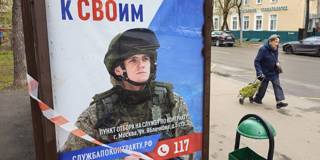Defying common sense, the Kremlin continues to proclaim with a straight face that its attack on Ukraine was an act of self-defense. Unfortunately, such propaganda strategies matter, not because they might fool us, but because they limit the potential for any serious peace negotiations.
LJUBLJANA – I sometimes listen to podcasts about the secrets behind the best-known magic tricks (the three-shell game, mentalism, levitation), and after reading recent news from Russia, I saw an analogy to how Russian propaganda has achieved the seemingly impossible. Defying common sense, the Kremlin continues to proclaim with a straight face that its attack on Ukraine was an act of self-defense.

LJUBLJANA – I sometimes listen to podcasts about the secrets behind the best-known magic tricks (the three-shell game, mentalism, levitation), and after reading recent news from Russia, I saw an analogy to how Russian propaganda has achieved the seemingly impossible. Defying common sense, the Kremlin continues to proclaim with a straight face that its attack on Ukraine was an act of self-defense.